Better Health



BOOKS: Marine vet writes story of forgotten war, D9
LIFESTYLE: Vintage bookstore runs from Brooklyn living room, D9
WEDDINGS: Owls become fixture for British ceremonies, D9
Society’s debilitating expectation of men:








BOOKS: Marine vet writes story of forgotten war, D9
LIFESTYLE: Vintage bookstore runs from Brooklyn living room, D9
WEDDINGS: Owls become fixture for British ceremonies, D9









By Staasi H eropoulos
Special To The Republican
When Rick Brohman sits down in a restaurant, he still keeps his back to the wall and an eye on the door. Being what he calls ‘hyper-vigilant’ is what helped this ex-marine from Palmer survive combat during Desert Storm in 1991.
“We were in Iraq fighting Saddam Hussein and we went through the oil fires and scud [missile] attacks,” said the 55-year-old. “After I came home, certain sounds or smells would take me back to when I was in combat, and that would give me anxious feelings, because when you’re in combat, you get very anxious.”
Brohman said he kept quiet about his anxiety because he was taught, that’s what men do when they come home from war. “It’s a huge thing. You’ve got the silent generation, the guys from World War I and World War II who never talked about it,” he said.
The marine veteran was like millions of men who were told, from when they were boys, society expects them to be strong and silent.
“Prodded by male social expressions such as ‘be a man,’ ‘boys don’t cry,’ ‘don’t be a wimp,’ ‘suck it up,’ and ‘shake it off,’ They are expected to be strong, tough, self-reliant, and dominant,” writes organizational speaker and trainer Preston Ni, in the June 2023 edition of Psychology Today.
Brohman tried hiding his fears from the world, but he wasn’t fooling his wife, who


Dr. McCarthy recommends a range of actions to keep good anxiety from going bad. People who have strong support systems are more likely to benefit from the potential positive benefits of anxiety.
encouraged him to get mental health care help from the U.S. Department of Veterans Affairs Healthcare. He took her advice, and after extensive counseling, medication and thanks to a service dog name Clay, Brohman is leading a much happier life.
“That’s why I got my dog. He takes my mind off me because I have to pay attention to something else. I tell everyone, my wife saved my life.”
Fear of falling short
The U.S. National Institutes of Health report, “Anxiety disorders are the most prevalent mental health disorder experienced by men.” The NIH goes on to say, anxiety spikes in some men when they feel they have fallen short of what society expects in a man.
“Masculine norms (i.e., stoicism, toughness, invulnerability) appear to be central to men’s experiences and expressions of anxiety as well as men’s help-seeking and coping behaviors,” stated the NIH.
Because some men see anxiety as a weakness, they don’t admit to being anxious—and they don’t seek help, said the NIH. The consensus among mental healthcare professionals is, women are more likely than men to admit they suffer from anxiety. According to the NIH, in 2022, 23% of females had a diagnosed anxiety disorder, compared to 14% of males.
“Statistics will tell us that anxiety is much more prev-
alent among women than men,” said Jeffrey R. McCarthy, Psy.D. outpatient mental health program manager at the VA Central Western Massachusetts Healthcare System.
“However, if I’ve learned anything working in a VA healthcare system that is predominantly comprised with men, it is that men are

untreated, can unfortunately result in the development of other psychiatric or medical problems, behavioral issues, or unhealthy coping mechanisms, including but not limited to substance use disorders,” said Dr. McCarthy. If men are unwilling to admit they suffer from anxiety, they are also less likely to seek help, creating a downward

less likely to endorse mental health issues and/or ask for help, thus it is reasonable to consider that this discrepancy may not be as large as it appears,” he continued.
Anxious reaction
There is a range of ways a man’s body reacts to anxiety—a pounding or racing heart, excessive sweating, muscle tension, restlessness, agitation, dizziness, shortness of breath, choking sensations, insomnia or panic attacks.
“There are many different types of anxiety conditions that can manifest and, if left

spiral that cause mind and body to break down.
“Severe anxiety can have a negative impact on one’s thinking ability, including poor attention and concentration, short term memory, and impaired decision making. If untreated, this can certainly have an undesirable impact on daily living activities, work, and relationships,” said Dr. McCarthy.
The good and bad
Experts say anxiety is a normal part of life—it can heighten awareness, spur action and enhance decisiveness. “It is
essentially what drives us,” said Dr. McCarthy.
Dr. McCarthy recommends a range of actions to keep good anxiety from going bad.
People who have strong support systems are more likely to benefit from the potential positive benefits of anxiety.
He advises, regular exercise, good nutrition along with getting enough sleep, cleanliness and a positive work-life balance also help keep anxiety under control.
Society’s ‘just-be-a-man’ expectations may cause anxiety, but there are other factors.
“There can be a genetic predisposition, but more often anxiety is triggered by lifestyle factors, such as high stress jobs, family pressures, health problems, or simply the pressures to perform in work or other areas of life creating lack of confidence and low self-esteem,” said Dr. McCarthy.
Dr. McCarthy advises men to seek treatment when anxiety goes from being a helping hand to becoming a hardship, disrupting life by making it difficult to focus, perform at work, or have healthy relationships with friends and family. Some men may also turn to unhealthy ways of coping.
When it goes untreated, anxiety can lead to a world of bad practices. Brohman turned to beer for comfort.
“You drink a couple beers and relax. Your mind craves to be relaxed and comfortable because you’re so on edge all the time.”

There are different ways of treating anxiety, from individual and group therapy sessions to medication.
“Psychotherapy typically includes teaching strategies to manage the cognitive, emotional, and physiological symptoms of anxiety, followed by exposure techniques in which one is gradually exposed to that which is creating said anxiety. These triggers can include environmental factors, one’s own thoughts of excessive fear or worry, or reminders of a past trauma,” said Dr. McCarthy.
While depression can be a seasonal disorder, triggered by the bitter cold and darkness of winter, anxiety is not typically linked to the change of seasons.
Dr. McCarthy advises men who think they are suffering from anxiety to contact their primary care providers who can make important recommendations and referrals. Men and their families may also find additional information and strategies by going online and consulting reputable sources. Brohman survived the first Gulf War by being brave under fire, now he’s surviving life by having the courage to ask for help.
“One of our greatest challenges is breaking the stigma that asking for help is suggestive of being weak or less masculine,” said Dr. McCarthy. “Anxiety is normal, but chronic or high levels of anxiety can be debilitating.”












Backyards are ideal places to spend warm afternoons soaking up some sun. Lazy days in the yard are a big part of what makes warm weather seasons like spring and summer so appealing. But those afternoons can quickly go off the rails when an unwelcome visitor makes its presence known.
Ticks can be found throughout the world, but the Centers for Disease Control and Prevention notes that only a select few types of ticks transmit bacteria, viruses and parasites, or pathogens, that cause diseases in people. But even if the number of tick species that transmit diseases to humans is relatively low, ticks that can infect humans are a notable threat. Such ticks carry pathogens that the CDC notes can cause a number of diseases, including Bourbon virus, Ehrlichiosis and, of course, Lyme disease, among others.
Human beings can come into contact with ticks in their own backyards. But humans can take various steps to make their lawns less welcoming to ticks.
Cut your grass short and keep it that way
Black-legged ticks are transmitters of Lyme disease, which the CDC notes is the
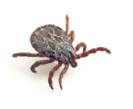
most common vector-borne disease in the United States. Lyme disease also poses a growing threat in Canada, where data from the Public Health Agency indicates human-reported Lyme disease cases increased from 144 in 2009 to more than 2,100 in 2022. Black-legged ticks do not like environments that are dry and hot, so short grass makes lawns less attractive to this type of tick. Consumer Reports advises homeowners who have let their grass grow a little too high (around five or six inches) to bag their clippings when cutting the grass. Lots of clippings on the grass can provide a respite from the heat for black-legged ticks.
won’t want to settle in often dry, hot mulch beds.
Plant with infestation prevention in mind
Some plants can help to repel ticks because they boast certain characteristics that ticks cannot tolerate. The fragrances, textures and oils of plants like garlic, mint, lavender, marigolds, and others create less welcoming conditions for ticks.
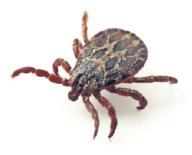
Homeowners can speak with local garden centers for advice on tick-repellant plants that can thrive in their particular climate and on their properties.
Remove debris around the yard
Create a tick barrier if your property abuts woods
Woods provide a cover from summer heat that blacklegged ticks crave. So properties that abut the woods may be more vulnerable to these unwanted guests than yards that do not border woodlands. A barrier of dry mulch made of wood chips between a property and a bordering wooded area can help repel ticks, who
Piles of wood, leaves and brush can make for good conditions for ticks that transmit disease. After raking leaves and gathering brush, discard the resulting piles immediately.
These measures will not necessarily prevent all ticks from establishing themselves on a property, so individuals are urged to inspect their bodies and the bodies of their pets after a day in the yard.




Individuals
Playing a round of golf is a great way to spend a morning, afternoon or early evening. That’s particularly true when the weather is warm and a golf course is soaked in sunshine and cooled down by warm breezes whistling
through the surrounding trees.
Though many see golf as recreation, the sport can offer some notable health benefits.
The Royal and Ancient Golf Club of St. Andrews, which was founded in 1754 and has since grown from a small club to one with 2,500 members across the globe, published a golf and health report in 2020. That report highlights research indicating the ways golf promotes both mental and physical health, and such evidence can make anyone feel better about spending a day on their nearest course.
With that in mind, individuals can consider these three notable health benefits of playing golf the next time they’re thinking about visiting their local course.
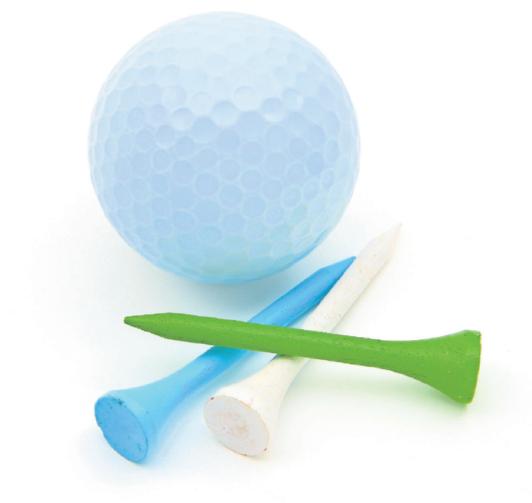
Golf may help you live longer
Frustrated golfers who can’t master their short game may suggest otherwise, but a study published in the Scandinavian Journal of Medicine and Science and Sports discovered a 40 percent reduction in mortality rates among 300,000 members of the Swedish Golf Federation. That corresponded to an increased life expectancy of roughly five years and applied to golfers of all ages, genders and socio-economic backgrounds.
Golf can help combat disease
A summary of findings conducted by researchers at the University of Edinburgh and published in the British Journal of Sports Medicine in 2016 found that golf can help prevent and treat 40 major chronic diseases, including diabetes, heart attack, stroke, depression, dementia, and cancers of the breast and colon. That link probably has something to do with golf being a physical activity that encourages people to embrace a less sedentary lifestyle. Indeed, the R&A notes that additional studies have found that risk factors for heart disease and stroke, including high blood pressure, are reduced among people who play golf.
Golf promotes social interaction



The Alzheimer’s Society reports that social isolation can increase a person’s risk for dementia by roughly 60 percent. People who play golf tend to play in groups of two, three or four, and that social interaction can promote social interaction among people of all ages. Social isolation also has been linked to additional mental health issues, including anxiety and depression, so activities like golf that encourage social interaction can help people safeguard their mental health. A round of golf may be widely viewed as a recreational activity. However, a day on the links also provides some notable health benefits.


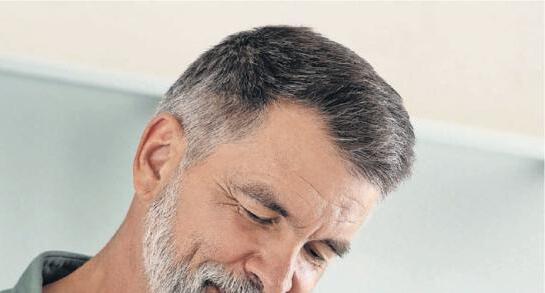





There are some simple daily habits all men might want to consider as they seek to improve their overall health.
No two men have the same exact makeup, so a health and wellness routine that works for one will not necessarily work for another. It’s important that men looking to turn over a healthier leaf keep those nuances in mind as they begin what will hopefully prove a successful journey to a healthier version of themselves.
Health care professionals often say the best approach to a healthier lifestyle is the one that an individual will stick to. That philosophy reflects that each man is different, but there are some simple daily
habits all men might want to consider as they seek to improve their overall health.
Drink more water
The Centers for Disease Control and Prevention note that drinking enough water each day provides a host of health benefits, including preventing dehydration. Dehydration can adversely affect mood and lead to confusion. Dehydration also can contribute to the formation of kidney stones, which the National Institutes of Health notes are more likely to affect men than women due to men’s diets and differences in urine chemistries. Symptoms of dehydration also mimic signs of hunger, which means men might overeat under the mistaken impression that they’re hungry when all their body really wants to do is hydrate.
The U.S. National Academies of Sciences, Engineering and Medicine determined that men should consume about 15.5 cups of water per day.
Eat breakfast
On-the-go guys may skip breakfast, which can cause a ripple effect throughout the rest of the day that ultimately harms their overall health.
The Cleveland Clinic notes that the body is most insu-





leep is a vital component of a healthy lifestyle. The National Institutes of Health says good sleep improves brain performance and mood and helps reduce the risk of many diseases and disorders, including heart disease and obesity. In fact, sleep is as important for good health as diet and exercise.
Too often people do not get enough sleep or poor quality sleep. Sleep needs change as a person ages, with young children and teens requiring between nine and 10 hours per night. Most adults need at least seven hours each night.
According to Dr. Kenneth Wright, Jr., a sleep researcher at the University of Colorado, a person can make up for a poor night’s sleep by sleeping in the next day, but habitual loss of sleep cannot be recuperated in a weekend.
Men need to focus on sleep to feel their best. These sleep strategies, courtesy of The Centers for Disease Control and Prevention and the NIH, can promote better sleep.
Be consistent
The body will adapt to a sleeping schedule when you go to bed and wake in the
lin-sensitive in the morning, making mornings a great time to consume fiber-filled carbohydrates that can help to lower cholesterol levels.
Eating breakfast also kicks metabolism into gear and can reduce the likelihood of overeating later in the day.
Get up and walk around throughout the workday
Men who work in office settings or other environments that require them to sit for long periods of time should make a concerted effort to get up and move around during the workday.
A 2016 study published in the International Journal of Behavioral Nutrition and Physical Activity found that workers who avoided sitting for six uninterrupted hours reported feeling more energetic throughout the day than those who were not active.
In addition, the study found that those who rose for hourly five-minute walks reported greater happiness, less fatigue and smaller cravings for food than on days when they took a single 30-minute walk.
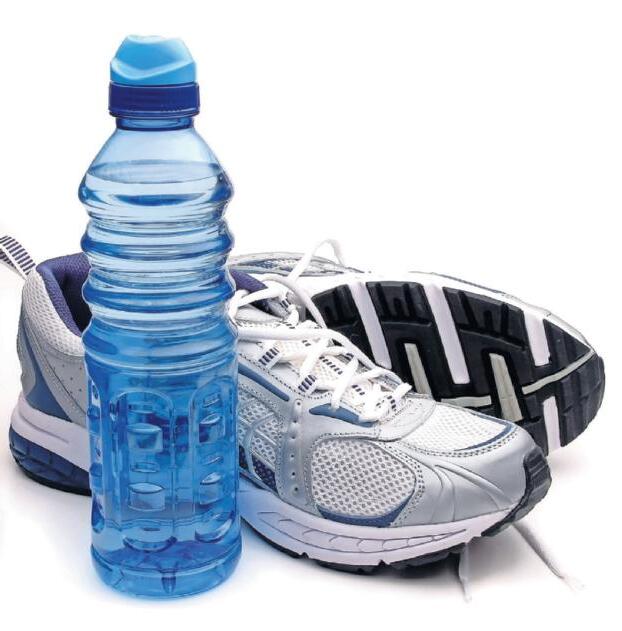
Cut back on screen time
Parents may work hard to ensure their children are not spending too much time on their devices, but men also can benefit from spending less time staring at screens.
The Mayo Clinic notes that cutting screen time can encourage men to be more physically active, improve their sleep quality and make strong social connections. Each of those things can improve overall health.
Some simple adjustments to their daily routines can help men improve their overall health.
morning at the same time each day. Try not to vary your schedule between weekdays or weekends, or even when on vacation.
Limit exposure to light at night
The body naturally responds to darkened conditions by stimulating the production of melatonin, which is a hormone that helps regulate the sleep-wake cycle. Too often people keep lights on at night or look at phones or watch television, which can adversely affect melatonin production and contribute to a poor sleep environment.
Exercise each day
Aim for daily exercise, which can make it easier to fall asleep at night. Avoid exercise a few hours before bed, however.
Spend time outside
At least 30 minutes of sunlight and fresh air each day can promote a better night’s sleep.
Light meals at night
Heavy meals that force the body to spend hours digesting can interrupt sleep onset and quality.



Watch your naps
Naps should be short and taken before mid-afternoon. Skip caffeine and alcohol later in a day
Caffeine consumption can impede the ability to fall asleep because it is a stimulant. Although alcohol is a depressant and can make it easy to fall asleep, the sleep that is taking place after consuming alcohol, particularly late at night, will not be quality, restorative sleep.
A quiet bedroom
A dark, cool and quiet bedroom is a positive sleep environment.
If sleeping habits do not improve after making these changes, individuals should speak with a health care provider to determine if there is an underlying condition that is compromising sleep, such as restless leg syndrome or obstructive sleep apnea. Although sleeping pills can offer relief once in a while, they should not be seen as long-term solutions to sleeping disorders. Doctors can be useful allies in helping individuals get better sleep.




